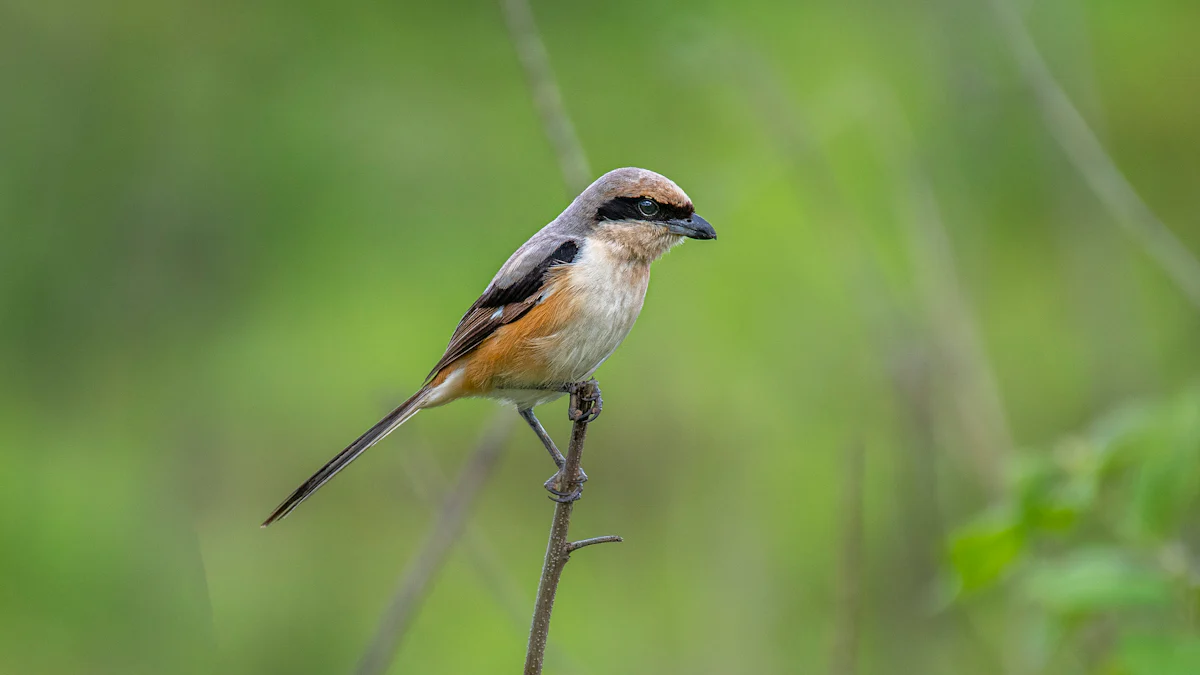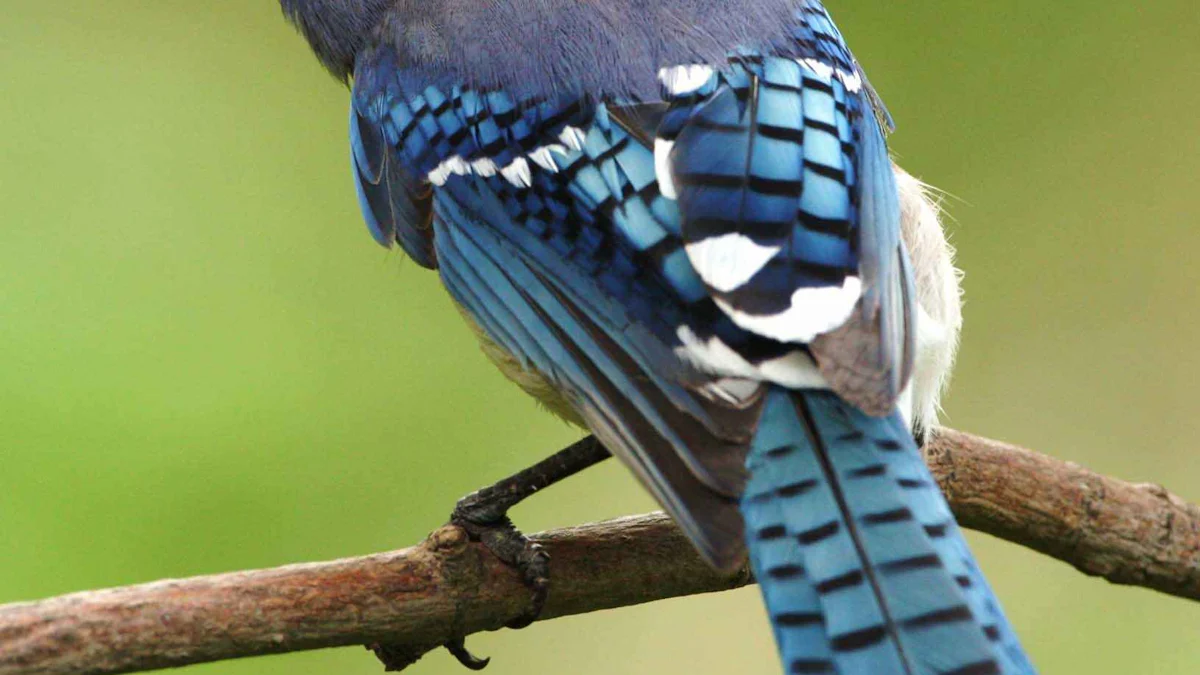
Dried Supper Mealworms are a powerhouse of nutrition for your pets and backyard birds. Packed with up to 53% protein, they provide the essential building blocks for muscle growth and overall health. These tiny treats also deliver vital vitamins like B12 and minerals such as calcium, iron, and magnesium, supporting energy levels and immune function. Their natural composition encourages healthy behaviors like foraging, keeping your pets active and engaged. With their long shelf life and ease of use, they’re a convenient way to boost your animals’ diet while ensuring they thrive.
Key Takeaways
-
- Dried Supper Mealworms are a nutrient-dense treat, offering up to 53% protein, essential vitamins, and minerals that support the health and vitality of pets and birds.
-
- To ensure a balanced diet, pair dried mealworms with other foods like seeds, fruits, and vegetables, treating them as a supplement rather than a primary food source.
-
- Rehydrate dried mealworms by soaking them in warm water for 20-30 minutes to enhance digestibility and provide extra hydration, especially for younger or older animals.
-
- Encourage natural foraging behaviors by scattering mealworms on the ground or using feeders, making mealtime engaging and stimulating for your pets and birds.
-
- Store dried mealworms in a cool, dry place in an airtight container to maintain freshness, and consider freezing them for long-term storage.
-
- Choose high-quality, sustainably sourced mealworms to ensure your pets receive safe and nutritious treats while supporting eco-friendly practices.
Nutritional Benefits of Dried Supper Mealworms

High Protein and Nutrient Content
Dried Supper Mealworms are an excellent source of high-quality protein, making them a fantastic addition to your pets’ or birds’ diet. With up to 53% protein content, they provide the essential amino acids needed for muscle development, feather growth, and overall vitality. Birds, in particular, benefit from this protein boost, as it supports their energy levels during activities like flying and nesting.
Scientific research highlights that the amino acid profile in mealworms closely matches the dietary needs of birds. This makes them a natural and effective way to meet your feathered friends’ nutritional requirements. Whether you’re feeding backyard birds or your pet reptiles, these mealworms deliver the protein punch they need to thrive.
Essential Vitamins and Minerals for Health
In addition to protein, Dried Supper Mealworms are packed with essential vitamins and minerals that promote overall health. They contain B vitamins, including B12, which play a crucial role in energy production and maintaining a healthy nervous system. Minerals like calcium, iron, magnesium, and potassium further enhance their nutritional value. Calcium supports strong bones and eggshell production in birds, while iron and magnesium contribute to better oxygen circulation and muscle function.
Studies comparing dried mealworms to traditional animal-based foods reveal that mealworms often provide higher amounts of trace elements and vitamins. By incorporating them into your pets’ diet, you ensure they receive a nutrient-dense food source that supports their long-term health.
Low Fat and High Fiber for a Balanced Diet
While mealworms are rich in protein and nutrients, they maintain a low-fat profile, making them a healthy choice for your animals. The fat they do contain includes essential fatty acids, which are vital for maintaining shiny feathers, healthy skin, and proper brain function. Their high fiber content also aids digestion, ensuring your pets process their food efficiently and stay comfortable.
For birds, the combination of low fat and high fiber helps maintain a balanced diet, especially when paired with other food sources. This balance reduces the risk of obesity and digestive issues, keeping your pets active and healthy. Adding Dried Supper Mealworms to their meals not only enhances their diet but also encourages natural foraging behaviors, which contribute to their mental and physical well-being.
Feeding Guidelines for Dried Supper Mealworms
Recommended Portion Sizes for Pets and Birds
Feeding the right amount of Dried Supper Mealworms ensures your pets and birds get the nutrition they need without overindulging. For small birds like finches or sparrows, a teaspoon of mealworms per day works well. Larger birds, such as robins or blue jays, can enjoy up to a tablespoon daily. If you’re feeding reptiles or fish, adjust the portion based on their size and dietary needs.
Overfeeding can lead to an unbalanced diet, so it’s important to treat mealworms as a supplement rather than a primary food source. Pair them with other foods like seeds, fruits, or vegetables to create a well-rounded diet. Always observe your pets’ eating habits and adjust portions if needed.
Rehydration Tips for Better Digestion
Dried Supper Mealworms are convenient, but rehydrating them can make them even better for digestion. Soaking the mealworms in warm water for 20-30 minutes softens them, making it easier for birds and pets to chew and digest. This is especially helpful for young or older animals that might struggle with harder textures.
Rehydrated mealworms also provide extra hydration, which is crucial during hot weather or for animals that don’t drink much water. To rehydrate, simply place the mealworms in a shallow dish of water and let them soak. Drain any excess water before serving to avoid messes.
Feeding Methods to Encourage Natural Behaviors
Feeding Dried Supper Mealworms in creative ways can stimulate natural behaviors in your pets and birds. Scatter mealworms on the ground or in a shallow tray to encourage foraging. For birds, placing mealworms in a hanging feeder mimics the experience of finding food in trees. Reptiles and fish may enjoy chasing live-like mealworms if you move them slightly during feeding.
These methods not only make mealtime more engaging but also promote physical activity and mental stimulation. By mimicking how animals find food in the wild, you help them stay active and healthy while enjoying their favorite treat.
Storage and Preparation of Dried Supper Mealworms
Proper Storage to Maintain Freshness
Keeping your Dried Supper Mealworms fresh ensures they retain their nutritional value and remain safe for your pets and birds. To achieve this, store them in a cool, dry place away from direct sunlight. Heat and moisture can cause spoilage, reducing their quality and making them less appealing to animals. An airtight container works best to protect the mealworms from humidity and pests. If you live in a particularly humid area, consider adding a small silica gel packet to the container to absorb excess moisture.
For long-term storage, freezing is an excellent option. Place the mealworms in a freezer-safe bag or container, ensuring it’s sealed tightly. Freezing not only extends their shelf life but also prevents contamination. Always check the expiration date on the packaging and use the mealworms within the recommended timeframe. By following these steps, you’ll keep your mealworms fresh and ready to serve whenever needed.
Preparing Mealworms for Feeding
Preparing mealworms properly makes them more enjoyable and digestible for your pets and birds. While dried mealworms are convenient, soaking them in water can enhance their texture and nutritional benefits. To rehydrate, place the mealworms in a shallow dish of warm water for about 20-30 minutes. This process softens them, making them easier to chew and digest, especially for younger or older animals. Rehydrated mealworms also provide extra hydration, which is particularly helpful during hot weather.
Once soaked, drain any excess water before serving to avoid messes. You can also mix the rehydrated mealworms with other foods like seeds or fruits to create a balanced meal. If you prefer to serve them dry, ensure they’re clean and free from dust or debris before feeding. Proper preparation not only improves the feeding experience but also ensures your pets and birds get the most out of this nutritious treat.
Potential Benefits and Drawbacks of Feeding Dried Supper Mealworms
Health and Behavioral Benefits for Pets and Birds
Feeding your pets and birds dried mealworms offers a range of health and behavioral advantages. These nutrient-packed treats provide essential protein, which supports muscle growth, feather development, and overall vitality. For chickens, mealworms can even improve egg production by supplying the nutrients needed for strong eggshells. Birds benefit from the boost in energy, especially during demanding activities like flying or nesting.
Beyond nutrition, dried mealworms encourage natural behaviors. Birds enjoy foraging for mealworms, which keeps them active and mentally stimulated. Reptiles and fish also find mealworms irresistible, making feeding time more engaging. By adding variety to their diet, you enhance their overall well-being and keep them excited about mealtime.
“Dried mealworms serve as a fun and natural treat, enhancing the well-being of animals.” – Petfu.com
Whether you’re caring for backyard chickens, pet reptiles, or wild birds, these mealworms offer a simple way to promote health and happiness.
Potential Risks of Overfeeding or Unbalanced Diets
While dried mealworms are highly nutritious, overfeeding can lead to problems. Too many mealworms may result in an unbalanced diet, depriving your pets or birds of other essential nutrients. For example, relying solely on mealworms could limit their intake of fiber or carbohydrates, which are crucial for digestion and energy.
Overfeeding can also cause weight gain, especially in birds and reptiles. This can lead to health issues like obesity or reduced mobility. To avoid these risks, treat mealworms as a supplement rather than a primary food source. Pair them with other foods like seeds, fruits, or vegetables to create a balanced diet.
Monitoring portion sizes is key. Stick to recommended amounts based on the size and dietary needs of your pets or birds. By doing so, you ensure they enjoy the benefits of dried mealworms without any drawbacks.
Tips for Responsible Feeding of Dried Supper Mealworms
Ensuring a Balanced Diet with Other Foods
To keep your pets and birds healthy, you need to offer a variety of foods alongside Dried Supper Mealworms. While mealworms are rich in protein and essential nutrients, they work best as a supplement rather than the main course. A balanced diet ensures your animals get all the vitamins, minerals, and energy they need for optimal health.
For birds, combine mealworms with seeds, fruits, and vegetables. This mix provides a range of nutrients, including carbohydrates for energy and fiber for digestion. Reptiles and fish also benefit from a diverse diet. Pair mealworms with leafy greens or other protein sources like crickets or shrimp. By rotating food options, you prevent dietary boredom and ensure your pets receive a well-rounded meal plan.
A study published by the National Center for Biotechnology Information highlights that mealworms are an efficient source of protein and energy. However, they lack certain nutrients found in other food types. Including a variety of foods helps fill these gaps, promoting long-term health and vitality in your pets and birds.
Choosing High-Quality, Sustainably Sourced Mealworms
The quality of the mealworms you choose directly impacts the health of your pets and birds. High-quality mealworms retain their nutritional value and are free from harmful additives or contaminants. Look for mealworms raised on clean, nutrient-rich diets. Some suppliers even enhance mealworms with antioxidants by feeding them carrots, oranges, or red cabbage, boosting their nutritional profile.
Sustainability matters too. Opt for mealworms sourced from farms that prioritize eco-friendly practices. Mealworm farming has a lower environmental impact compared to traditional livestock farming. Choosing sustainably sourced mealworms supports the environment while providing a nutritious treat for your animals.
When shopping, check the packaging for details about the mealworms’ origin and processing. Trusted brands often provide transparency about their farming methods. By selecting high-quality, responsibly sourced mealworms, you ensure your pets and birds enjoy a safe and nutritious snack.
Dried Supper Mealworms provide a nutrient-packed and versatile option for feeding your pets and birds. By storing them properly in a cool, dry place and preparing them thoughtfully, you ensure their freshness and nutritional value. Responsible feeding practices, like offering a varied diet and monitoring portions, help maintain your animals’ health and vitality. These mealworms also encourage natural behaviors, making them an enjoyable treat. When sourced from reputable suppliers, they become a safe and convenient addition to your feeding routine. Follow these tips to give your pets and feathered friends a healthy and satisfying experience.
FAQ
Are dried mealworms good for birds?
Absolutely! Dried mealworms are a fantastic choice for birds. They pack a punch with protein, fat, and essential nutrients that support bird growth, health, and survival. Unlike live mealworms, dried ones have a longer shelf life, don’t require refrigeration, and are far less messy. To keep their nutritional value intact, store them properly in a cool, dry place and prepare them thoughtfully before feeding.
Are dried mealworms more nutrient-dense than live mealworms?
Yes, they are! Dried mealworms undergo processes like freeze-drying or oven-drying, which help preserve their nutritional value. This makes them more nutrient-dense compared to live mealworms. They’re also incredibly convenient, with a longer shelf life and no need for special storage conditions. If you’re looking for a rich source of protein, fat, and essential nutrients, dried mealworms are the way to go.
What are the nutritional wonders of dried mealworms?
Dried mealworms are a powerhouse of nutrition. They’re loaded with protein, making them an excellent choice for muscle development and energy. Beyond that, they contain essential vitamins and minerals like calcium, iron, and magnesium, which support overall health. Their versatility also makes them a valuable addition to various diets, whether for pets, birds, or even creative culinary uses.
What are the benefits of feeding dried mealworms to pets?
Dried mealworms offer numerous benefits for your pets. They’re packed with up to 53% protein by weight, which helps maintain muscle mass and provides energy. They also deliver essential vitamins and minerals that support overall health. Whether you’re feeding reptiles, fish, or backyard chickens, these mealworms make a nutritious and well-rounded snack.
How should I store dried mealworms?
To keep your dried mealworms fresh, store them in a cool, dry place away from sunlight. Use an airtight container to protect them from moisture and pests. If you live in a humid area, adding a silica gel packet can help absorb excess moisture. For long-term storage, freezing is a great option. Always check the expiration date and use them within the recommended timeframe.
Can I rehydrate dried mealworms before feeding?
Yes, rehydrating dried mealworms is a great idea, especially for easier digestion. Soak them in warm water for 20–30 minutes to soften their texture. This makes them easier to chew and digest, particularly for younger or older animals. Rehydrated mealworms also provide extra hydration, which is helpful during hot weather. Just drain any excess water before serving.
How often should I feed dried mealworms to my pets or birds?
Dried mealworms should be treated as a supplement rather than a primary food source. For small birds, a teaspoon per day is sufficient. Larger birds can enjoy up to a tablespoon daily. For reptiles or fish, adjust the portion based on their size and dietary needs. Always pair mealworms with other foods to ensure a balanced diet.
Do dried mealworms encourage natural behaviors?
Yes, they do! Feeding dried mealworms can stimulate natural behaviors like foraging in birds. Scatter them on the ground or place them in feeders to mimic how birds find food in the wild. Reptiles and fish may enjoy chasing slightly moved mealworms during feeding. These activities keep your pets mentally and physically engaged.
Are dried mealworms safe for all pets?
Dried mealworms are safe for most pets, including birds, reptiles, fish, and even chickens. However, always monitor portion sizes and avoid overfeeding. If your pet has specific dietary restrictions or health concerns, consult a veterinarian before introducing mealworms into their diet.
Why should I choose sustainably sourced dried mealworms?
Sustainably sourced mealworms benefit both your pets and the environment. Farms that prioritize eco-friendly practices produce high-quality mealworms while reducing their environmental impact. By choosing responsibly sourced mealworms, you ensure your pets get a safe, nutritious treat while supporting sustainable farming practices. Look for trusted brands that provide transparency about their sourcing methods.


